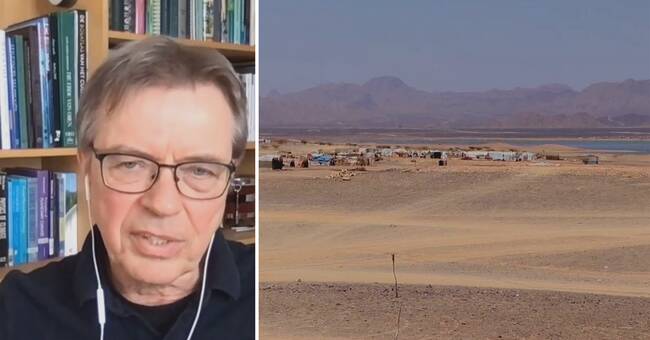Even today, the temperature sometimes reaches over 50 degrees in, for example, Baghdad.
It will become everyday food in the future, believes a group of researchers in a study published in the journal Nature climate change.
They are painting a scorching heat in the Middle East and North Africa if climate emissions continue as they are today.
In the late 2000s, according to the researchers' models, it could be what they call ultra-extreme heat waves in summer, with temperatures above 56 degrees for several weeks in a row.
- Temperatures of 60 degrees can not be ruled out.
But even if you take an optimistic scenario, there will be areas in the region with heat waves around 55 degrees.
Then you should not be out.
The body evaporates so quickly that you quickly suffer from dehydration.
It is extremely dangerous, says climate researcher Jos Lelieveld at the Max Planck Institute in Mainz, who led the research.
Half a billion in the risk zone
Towards the end of the century, more than half a billion people in the region risk being exposed to unbearable extreme heat every year.
- The cities function as "heat islands" so it gets even worse there.
Temperatures of well over 50 will be the new normal.
And these are temperatures that neither humans nor animals can survive in.
But even if emissions are slowed down and the major emission countries manage to come down to zero by the middle of the century, warming will still continue in the region, according to the researchers.
- The worst heat waves today will be normal in the future, and despite slowed emissions we will see heat extremes that we have not seen before, says Jos Lelieveld.
Can force mass flight
Without economic development, social security and access to water, the hot summers of the future could force many people in the Middle East and North Africa to flee north.
- If you can afford air conditioning, you can stay.
But if you do not have it, I think people will start migrating.
I do not think they will go to tropical Africa, but to Europe.
So it is not just about averting a human catastrophe, but Europe also has a vested interest in ensuring that this does not happen, says Jos Lelieveld.
You can read the entire study here.
Is it too late for the climate already despite all the new promises? The curves that determine the planet and our future go in the wrong direction. For the next three Mondays, Aktuellt makes an investment in the raging climate where we depict extreme heat in the Middle East, a dying Amazon and the melting ice sheets.

